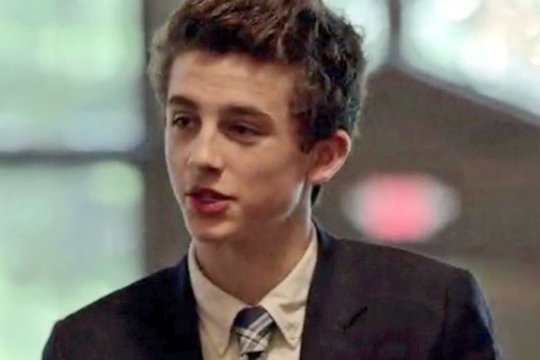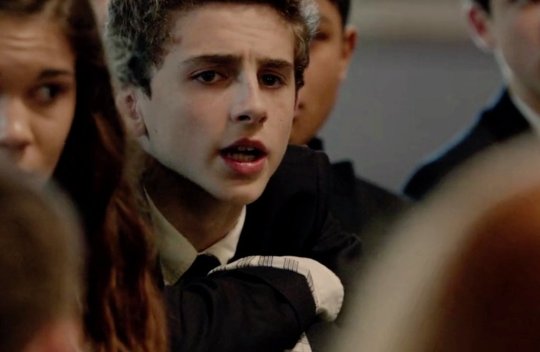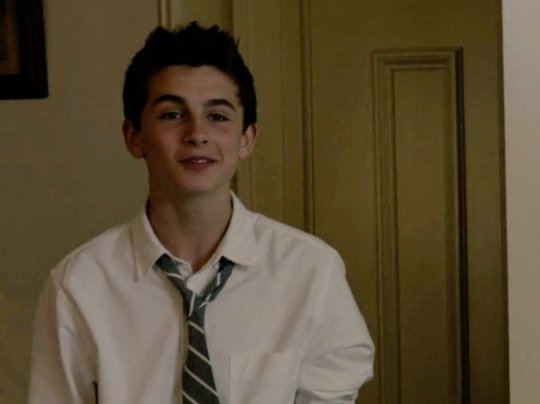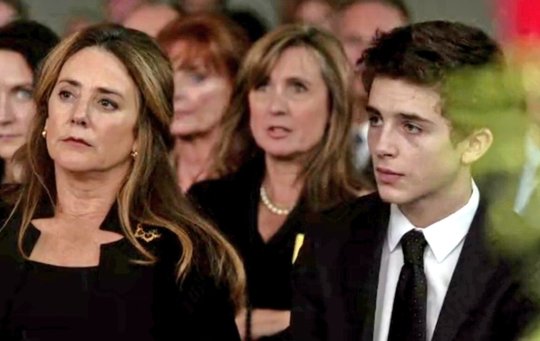#finn walden
Note
ppderia fazer icons do timothée chalamet e da elle fanning, por favor?


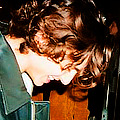
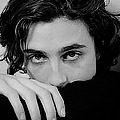
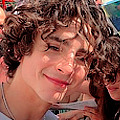




elle
#timothee chalamet#icons#boys icons#timothee#layout#icons spirit#spirit icons#spirit fanfics#icons 120x120#Finn Walden#homeland#call me by your name#elio perlman
36 notes
·
View notes
Text
end of the year book tag 2023
I did this tag last year more or less at this time. This book tag was created by Ariel Bissett over on youtube, and I recently heard her talking about it again in her podcast, which is how I got the inspiration of doing it again this year. As I think I have also mentioned last year when doing this, I tend to be a mood reader so planning my next reads never really works, but it's fun to sit down and reflect a bit on what is coming next into my reading life before the year is over.
Are there any books you started this year that you need to finish?
As I am writing this I have three main books I am in the middle of: Hell Followed With us by Andrew Joseph White, Finn Family Moomintroll by Tove Jansson and Queer: A Graphic History by Meg-John Barker. I have technically also started reading Walden by Thoreau a while back, but I don't have a plan to finish it quickly, it's more one of those books I read a little bit every once in a while when I feel like it, because I want to grasp as much as I can and while I am also taking classes and studying for exams I always struggle a bit with enjoying non-fic on my own.
Do you have an autumnal book to transition into the end of the year?
I am once again doing this tag in the middle of autumn, so idk how much it counts, but I don't think I have a proper autumnal book on my tbr/wishlist. I am still waiting to get the sixth volume of Something Is Killing The Children, which is an horror graphic novel so that might count as a spooky season book. But I don't really wait spooky season to read horror books.
Is there a new release you're still waiting for?
As I mentioned the sixth volume of Something Is Killing The Children has very recently came out here in Italy and I am desperately waiting to find a copy of it. I am also waiting to get Bookstores And Bonedust by Travis Baldree which is coming out at the beginning of November. There are a couple of other 2023 releases I still haven't got my hands on but I don't know yet if I'll get them before the year ends (mainly He Who Drowned The World by Shelly Parker Chan, and The Land Of Lost Things by John Connolly). I am also waiting for the release of the final book in the locked tomb series but I don't think a release date has been set yet? (and regarding that I have yet to decide what I want to do because I would like to get physical copies of the English editions, but it will be a future me problem to solve).
What are three books you want to read before the end of the year?
One of my goals for 2023 is the read all the books I have bought this year, or at least as many as I can. I must say I have been very good with this goal, but I do have a couple of books that have been sitting on my shelf for a while. I don't know if I'll get into the right mood to read them before the year ends but I will add a couple of those to this list. The first one is Nel Buio Della Casa by Fiore Manni and Michele Monteleone. It's an horror novel of the hauted house genre which is one of my favourites but for some reason I haven't picked it up yet. Next is a book I cannot wait to pick up The Ballad Of The Reading Gaol by Oscar Wilde, I love this author and after reading De Profundis earlier this year I have been really intrigued by this poem. Finally I bought a prose edition of The Odyssey and I might end up picking it up before the year ends.
Is there a book you think could still shock you and become your favourite book of the year?
Not really? I expect to love a lot of the books I'd like to read before the end of the year but there's a couple of books I read this year that I doubt can be topped (Gideon The Ninth being at the top of that list alongside The Priory Of The Orange Tree).
Have you already started making reading plans for next year?
I actually have, weirdly enough. I was thinking about goals for next year and I think I will definitely keep the goal of trying to read all/ most of the books I buy during the year. I certainly need to find a way to read more of the books that have been on my shelves for years, so I will have to think of a more structured plan to reach that goal. I am also considering to create a goal to finally complete my Neil Gaiman collection since this year I have read all of the books by him I own. That could be a fun goal I think. Lastly I'd like to try and get as many books as I can second hand. It's not really super easy for me to do, because where I live there are no second hand book stores, and generally what I look for is quite difficult to find in regular shops, but there's a few exceptions, like classics for example are easier to thrift. Again these are more brain dump thoughts than an actual plan, but it's more than what I had last year at this time.
(no pressure) tags: @just-a-cup-of-anxietea, @fluencylevelfrench, @dreamofghosts, @upside-down-uni, @la-galaxie-langblr
12 notes
·
View notes
Note
I never got too deep into the tv series and honestly didn't even know it had a book adaptation but were there any big differences between them?
so many. to be fair to the show — with all the grace i'm willing to give jason rothenberg lmao — the show & the first book were developed at the same time from the same base concept kass had come up with for it.
that being said, here are some differences!
ㅤㅤㅤ•ㅤthe time between the nuclear apocalypse — called the cataclysm in the book — and the beginning of the story is 97 years in the show and 300 years in the books.
ㅤㅤㅤ•ㅤthe ark is referred to as the colony, and consists of three major “ships” (phoenix, arcadia & walden), rather than the 12 or so stations (medical, earth monitoring, agro, alpha, arrow, factory, hydra, mecha, prison, tesla, flint & orchid) on the ark.
ㅤㅤㅤ•ㅤin terms of comparability, phoenix & alpha seem to be the most “rich” of the stations / ships, and arcadia & walden being comparable to factory or mecha in terms of being the working class stations.
ㅤㅤㅤ•ㅤthe colony itself has a far more in depth look into the classism on it’s ships, with phoenix being the “upper class” ship where people can have a better life through their status and wealth, vs arcadia & walden being more “working class” where people struggle to get by and a lot of the ships resources are not allocated properly. there is also a law divide between the ships, as those on walden or arcadia are not allowed to travel between the ships to phoenix without permission, and doing so could result in punishment.
ㅤㅤㅤ•ㅤin the show, clarke & bellamy are the two main leads; in the books, there are four pov characters, with wells being one and another being glass sorenson, who isn’t in the show and doesn’t have any composite character there.
ㅤㅤㅤ•ㅤthere are no grounders in the books; instead the people found on the ground when the delinquents land are a rebellious offshoot of the main group known as the earthborn. however they are more equivalent to a “good” version of the mountain men; as their ancestors survived in the mountain bunker before leaving it 50 years before the books start. they are led by max walgrove.
ㅤㅤㅤ•ㅤas such, there are no grounders from the shows in the books. other characters from the show’s main group that don’t exist in the books : raven reyes, finn collins, john murphy, marcus kane, monty green, jasper jordan, harper mcintyre, eric jackson, nathan miller, etc etc.
ㅤㅤㅤ•ㅤlincoln also does not exist in the books but there is a character similar to him in concept — a person from earth falling in love with a sky person & being rebellious against their people — in max's daughter, sasha walgrove.
ㅤㅤㅤ•ㅤraven reyes also has a character similar to her in luke, glass's boyfriend. both are engineers who struggle to keep their loved one alive & suffer a leg injury some time into the show / book.
ㅤㅤㅤ•ㅤvarious name changes from show to book are:
ㅤㅤㅤㅤㅤㅤ•ㅤaurora blake is melinda blake.
ㅤㅤㅤㅤㅤㅤ•ㅤabby griffin is mary griffin.
ㅤㅤㅤㅤㅤㅤ•ㅤjake griffin is david griffin.
ㅤㅤㅤ•ㅤthe colony’s law follows the gaia doctrine, the ark follows the exodus charter.
ㅤㅤㅤ•ㅤthe skyboxis referred to as confinement or the detention center.
ㅤㅤㅤ•ㅤthe nuclear apocalypse (praimfaya or apocalypse one) is referred to as the cataclysm or the exodus.
ㅤㅤㅤ•ㅤthere’s no name for the tree in the show, but in the books, it’s referred to as the eden tree & it is set on fire by wells' in order to get himself sent down to earth.
ㅤㅤㅤ•ㅤoctavia is 16 in the show & 14 in the books. bellamy is 23 in the show & 20 in the books.
ㅤㅤㅤ•ㅤwhile clarke & bellamy are confirmed bisexual by the show & actors, it is unknown if kass intended for them to be bisexual in the books also. however, octavia is confirmed bisexual or mspec, as she has been shown to have crushes on wells & graham, & kissed a girl named anna.
SPOILER TERRITORY BELOW.
ㅤㅤㅤ•ㅤbellamy is wells' half brother, with wells’ father, chancellor jaha, who had slept with melinda blake before getting into a relationship with wells’ mother. as there are no described races in the books, the ethnicities of the boys & their parents are unknown. this did not carry over into the show, as bellamy is played by the half filipino, half white actor bob morley, & wells is played by the black actor eli goree.
ㅤㅤㅤ•ㅤbellamy & clarke are a confirmed couple in the books, having gotten engaged in the last book, rebellion.
ㅤㅤㅤ•ㅤmary & david griffin are revealed to be alive in homecoming, surviving unlike their counterparts in the show: jake (who died before the show started via being floated) & abby (who was murdered by russell lightbourne.)
this was a very long post & there are probably other differences but i'm in the process of rereading the books now so i'll reblog this with any others i find if i do!
#the 100#the 100 novels#the 100 books#the 100 day 21#day 21#the 100 homecoming#homecoming#the 100 rebellion#rebellion#kass morgan#ais.txt#answered#q
13 notes
·
View notes
Text
Literary Canon (from kissgrammar)
The Holy Bible, Authorized King James Version [At a minimum, the books of Genesis, Exodus, Job, Psalms, from the Old Testament; Matthew, Mark, Luke, John, and Apocalypse from the New.] Whether or not you are Christian is irrelevant. The civilization in which we live is based on and permeated by the ideas and values expressed in this book. Understanding our civilization, the world in which we live, is probably impossible without having read -- and thought about -- at least the most famous books in the Bible. Historically, the King James Version is considered the most artistic, and thus has probably had the most literary influence.
Homer, The Iliad
Homer, The Odyssey
Sophocles, Oedipus the King (Oedipus Rex)
Sophocles, Antigone
Plato, The Republic, especially "The Myth of the Cave"
Ovid, Metamorphoses
Saint Augustine, The Confessions
Dante, The Divine Comedy
Giovanni Boccaccio, The Decameron
Niccolo Machiavelli, The Prince
Giambattista Vico, Principles of a New Science
Miguel de Cervantes, Don Quixote
Geoffrey Chaucer, The Canterbury Tales
Romeo and Juliet
King Lear
Hamlet
Othello
Macbeth
John Donne, "Holy Sonnet XIV"
John Donne, "A Valediction Forbidding Mourning"
Andrew Marvell, "To His Coy Mistress"
John Milton, Paradise Lost
Jonathan Swift, Gulliver's Travels
A Modest Proposal
Daniel Defoe, Robinson Crusoe
Laurence Sterne, The Life and Opinions of Tristram Shandy, Gentleman
Michel de Montaigne, Essays, especially "Of Experience"
Francois Rabelais, Gargantua and Pantagruel
Moliere, The Misanthrope
Blaise Pascal, Pensees
Jean-Jacques Rousseau, Emile
Voltaire, Candide
Erasmus, In Praise of Folly
Johann Wolfgang von Goethe, Faust, Parts One & Two
Honore de Balzac, Old Goriot (also translated as Pere Goriot)
Stendhal, The Red and the Black
Gustave Flaubert, Madame Bovary
Emile Zola, Germinal
Henrik Ibsen, A Doll's House
William Blake
William Wordsworth
Jane Austen, Pride and Prejudice
Lord Byron, Don Juan
John Keats, "Ode on a Grecian Urn"
Robert Browning, "My Last Duchess"
Charles Dickens - Oliver Twist
A Tale Of Two Cities
Hard Times
A Christmas Carol
Matthew Arnold, "Dover Beach"
John Stuart Mill, On Liberty
Lewis Carroll, Alice in Wonderland
Charlotte Bronte, Jane Eyre
Emily Bronte, Wuthering Heights
Francis Thompson, "The Hound of Heaven"
Samuel Butler, Erewhon
Oscar Wilde, The Picture of Dorian Gray
George Eliot- Silas Marner
Middlemarch
Robert Louis Stevenson, Dr. Jekyll and Mr. Hyde
Friedrich Nietzsche - Beyond Good and Evil
The Will To Power
The Birth of Tragedy
On the Genealogy of Morals
Alexander Pushkin - Eugene Onegin
The Bronze Horseman
Nikolai Gogol -The Overcoat
Dead Souls
Mikhail Lermontov, A Hero of Our Time
Ivan Turgenev, Fathers and Sons
Fyodor Dostoevsky -Notes From the Underground
Crime and Punishment
Leo Tolstoy -The Death of Ivan Ilych
War and Peace
Anton Chekhov, The Cherry Orchard
James Fenimore Cooper, The Deerslayer
Ralph Waldo Emerson, Essays
Emily Dickinson - "Because I Could Not Stop For Death"
"The Tint I Cannot Take"
"There's a Certain Slant of Light"
Walt Whitman - "Song of Myself"
"The Sleepers"
"Crossing Brooklyn Ferry"
"As I Ebbed With The Ocean of Life"
"Out of the Cradle Endlessly Rocking"
"When Lilacs Last in the Dooryard Bloomd"
Nathaniel Hawthorne - Young Goodman Brown
The Scarlet Letter
Herman Melville, Moby-Dick
Edgar Allen Poe - "The Raven"
The Cask of Amontillado
Henry David Thoreau, Walden
Kate Chopin -The Story of An Hour
The Awakening
Stephen Crane, The Red Badge of Courage
Henry James
Mark Twain, The Adventures of Huckleberry Finn
Luigi Pirandello
4 notes
·
View notes
Text
Walden Macnair : Die.
Thorfinn Rowle: Please don't die!
Walden Macnair : DIE!
Thorfinn Rowle: PLEASE DON'T DIE!
Antonin Dolohov , confused: Why are they yelling at a plant?
Corban Yaxley , watching while eating popcorn: They bought it together and Finn wants Walden to accept it as their kid.
#walden macnair#thorfinn rowle#antonin dolohov#corban yaxley#70s slytherins#slytherin incorrect quotes#marauders era#death eaters incorrect quotes#death eaters
27 notes
·
View notes
Text
Best English Poets of All Time- English Literature
Best English Poets of All Time- English Literature
The Best English Poets of All Time in english literature. people just know the poet death & birth and literary works.
William Shakespeare (1564 – 1616) English poet and playwright. Famous plays include Macbeth, Romeo and Juliet, Merchant of Venice and Hamlet. Shakespeare is widely considered the seminal writer of the English language.
Jonathan Swift (1667 – 1745) Anglo-Irish writer born in Dublin. Swift was a prominent satirist, essayist and author. Notable works include Gulliver’s Travels (1726), A Modest Proposal and A Tale of a Tub.
Samuel Johnson (1709 – 1784) Britishauthor best known for his compilation of the English dictionary. Although not the first attempt at a dictionary, it was widely considered to be the most comprehensive – setting the standard for later dictionaries.
Johann Wolfgang von Goethe (1749 – 1832) German poet, playwright, and author. Notable works of Goethe include: Faust, Wilhelm Meister’s Apprenticeship and Elective Affinities.
Jane Austen (1775 – 1817) English author who wrote romantic fiction combined with social realism. Her novels include: Sense and Sensibility (1811), Pride and Prejudice (1813) and Emma (1816).
Honore de Balzac (1799 – 1850) French novelist and short story writer. Balzac was an influential realist writer who created characters of moral ambiguity – often based on his own real life examples. His greatest work was the collection of short stories La Comédie humaine.
Alexandre Dumas (1802 – 1870) French author of historical dramas, including – The Count of Monte Cristo (1844), and The Three Musketeers (1844). Also prolific author of magazine articles, pamphlets and travel books.
Victor Hugo (1802 – 1885) French author and poet. Hugo’s novels include Les Misérables, (1862) and Notre-Dame de Paris (1831).
Charles Dickens (1812 – 1870) – English writer and social critic. His best-known works include novels such as Oliver Twist, David Copperfield and A Christmas Carol.
Charlotte Bronte (1816 – 1855) English novelist and poet, from Haworth. Her best known novel is ‘Jane Eyre’ (1847).
Henry David Thoreau (1817 – 1862) – American poet, writer and leading member of the Transcendentalist movement. Thoreau’s “Walden” (1854) was a unique account of living close to nature.
Emily Bronte (1818 – 1848) English novelist. Emily Bronte is best known for her novel Wuthering Heights (1847), and her poetry.
George Eliot (1819 – 1880) Pen name of Mary Ann Evans. Wrote novels, The Mill on the Floss (1860), Silas Marner (1861), Middlemarch (1871–72), and Daniel Deronda (1876)
Leo Tolstoy (1828 – 1910) Russian novelist and moral philosopher. Famous works include the epic novels – War and Peace (1869) and Anna Karenina (1877). Tolstoy also became an influential philosopher with his brand of Christian pacificism.
Fyodor Dostoevsky (1821-1881) Russian novelist, journalist and philosopher. Notable works include Notes from Underground, Crime and Punishment and The Idiot
Lewis Carroll (1832-1898) Oxford mathematician and author. Famous for Alice in Wonderland, Through the Looking Glass, and poems like The Snark.
Mark Twain (1835 – 1910) American writer and humorist, considered the ‘father of American literature’. Famous works include The Adventures of Tom Sawyer (1876) and Adventures of Huckleberry Finn (1885).
Thomas Hardy (1840-1928) English novelist and poet. Hardy was a Victorian realist who was influenced by Romanticism. He wrote about problems of Victorian society – in particular, declining rural life. Notable works include: Far from the Madding Crowd (1874), Tess of the d’Urbervilles (1891), andJude the Obscure (1895).
Oscar Wilde (1854 – 1900) – Irish writer and poet. Wilde wrote humorous, satirical plays, such as ‘The Importance of Being Earnest‘ and ‘The Picture of Dorian Grey’.
Kenneth Graham (1859 – 1932) Author of the Wind in the Willows (1908), a classic of children’s literature.
George Bernard Shaw (1856 – 1950) Irish playwright and wit. Famous works include: Pygmalion (1912), Man and Superman (1903) and Back to Methuselah (1921)
Sir Arthur Conan Doyle (1859 – 1930) British author of historical novels and plays. Most famous for his short stories about the detective – Sherlock Holmes, such as The Hound of the Baskervilles (1902) and Sign of Four (1890).
Beatrix Potter (1866 – 1943) English conservationist and author of imaginative children’s books, such as the Tales of Peter Rabbit (1902).
Marcel Proust (1871 – 1922) French author. Best known for epic novel l À la recherche du temps perdu (In Search of Lost Time) published in seven parts between 1913 and 1927.
William Somerset Maugham 1874 – 1965) British novelist and writer. One of the most popular authors of 1930s. Notable works included The Moon and Sixpence (1916), The Razor’s Edge (1944), and Of Human Bondage (1915)
P.G.Wodehouse (1881 – 1975) English comic writer. Best known for his humorous and satirical stories about the English upper classes, such as Jeeves and Wooster and Blandings Castle.
Virginia Woolf (1882 – 1941) English modernist writer, a member of the Bloomsbury group. Famous novels include Mrs Dalloway (1925), To the Lighthouse (1927) and Orlando (1928).
James Joyce (1882 – 1941) Irish writer from Dublin. Joyce was one of most influential modernist avant-garde writers of the Twentieth Century. His novel Ulysses (1922), was ground-breaking for its stream of consciousness style. Other works include Dubliners (1914) and Finnegans Wake (1939).
D H Lawrence (1885 – 1930) English poet, novelist and writer. Best known works include Sons and Lovers, The Rainbow, Women in Love and Lady Chatterley’s Lover (1928) – which was banned for many years.
Agatha Christie (1890 – 1976) British fictional crime writer. Many of her books focused on series featuring her detectives ‘Poirot’ and Mrs Marple.
J.R.R. Tolkien (1892 – 1973) – Professor of Anglo-Saxon and English at Oxford University. Tolkien wrote the best-selling mythical trilogy The Lord of the Rings. Other works include, The Hobbit and The Silmarillion, and a translation of Beowulf.
Vera Brittain (1893 – 1970) British writer best known for her autobiography – Testament of Youth (1933) – sharing her traumatic experiences of the First World War.
F. Scott Fitzgerald (1896 – 1940) American author. Iconic writer of the ‘jazz age’. Notable works include The Great Gatsby (1925), and Tender Is the Night (1934) – cautionary tales about the ‘Jazz decade’ and the American Dream based on pleasure and materialism.
Enid Blyton (1897 – 1968) British children’s writer, known for her series of children’s books – The Famous Five and The Secret Seven. Blyton wrote an estimated 800 books over 40 years.
C.S. Lewis (1898 – 1963) Irish / English author and professor at Oxford University. Lewis is best known for The Chronicles of Narnia, a children’s fantasy series. Also well known as a Christian apologist.
Ernest Hemingway (1899 – 1961) Ground breaking modernist American writer. Famous works included For Whom The Bell Tolls (1940) and A Farewell to Arms (1929).
Vladimir Nabokov (1899 – 1977) Russian author of Lolita (1955) and Pale Fire (1962)
Barbara Cartland (1901 – 2000) One of most prolific and best selling authors of the romantic fiction genre. Some suggest she has sold over 2 billion copies worldwide.
John Steinbeck (1902 – 1968) American writer who captured the social change experienced in the US around the time of the Great Depression. Famous works include – Of Mice and Men (1937), The Grapes of Wrath (1939) and East of Eden (1952).
George Orwell (1903 – 1950) – English author. Famous works include Animal Farm, and 1984. – Both stark warnings about the dangers of totalitarian states, Orwell was also a democratic socialist who fought in the Spanish Civil War, documenting his experiences in “Homage to Catalonia” (1938).
Samuel Beckett (1906-1989) Irish avant garde, modernist writer. Beckett wrote minimalist and thought provoking plays, such as ‘Waiting for Godot’ (1953) and ‘Endgame‘ (1957). He was awarded the Nobel Prize in Literature in 1969.
Albert Camus (1913 – 1960) – French author, journalist, and philosopher. Associated with existentialism and absurdism. Famous works included The Myth of Sisyphus, The Stranger and The Plague.
Roald Dahl (1916 – 1990) English author, best known for his children’s books, such as Willy Wonka and the Chocolate Factory, James and The Giant Peach and The BFG.
Aleksandr Solzhenitsyn (1918 – 2008) Russian author, historian and political critic. Solzhenitsyn was awarded the Nobel Prize for Literature in 1970 for his work in exposing the nature of Soviet totalitarianism. e.g, The Gulag Archipelago (1965-67).
J.D. Salinger (1919 – 2010) American author. Most influential novel The Catcher in the Rye (1951). Wrote many short stories for New Yorker magazine, such as “A Perfect Day for Bananafish”
Joseph Heller (1923 – 1999) American novelist, who wrote satirical and black comedy. His most famous work is ‘Catch 22’ (1961) – a satire on the futility of war.
Gabriel Garcia Marquez (1927 – 2014) Colombian author. Wrote: One Hundred Years of Solitude (1967), The Autumn of the Patriarch (1975) and Love in the Time of Cholera (1985). Nobel Prize in Literature (1982).
Anne Frank (1929 – 1945) Dutch-Jewish diarist. Known for her diary ‘Anne Frank‘ Published posthumously by her father – recalling her life hiding from Gestapo in occupied Holland.
Salman Rushdie (1947 – ) Anglo-Indian author. His works combine elements of magic realism, satire and historical fiction – often based on Indian sub-continent. Notable works include Midnight’s Children (1981), Shame (1983) and Satanic Verses (1988).
Stephen King (1947 – ) American author of contemporary horror, supernatural fiction, suspense, science fiction, and fantasy. One of the best selling authors of modern times.
George R.R Martin (1948 – ) American author of epic fantasy series – A Song of Ice and Fire, – his international best-selling series of fantasy, adapted for the screen as a Game of Thrones.
Douglas Adams (1952 – 2001) British writer of humorous and absure science fiction. Adams wrote a best selling trilogy (of five books) The Hitchhiker’s Guide to the Galaxy – which began as a BBC play.
J.K.Rowling (1965 – ) British author of the Harry Potter Series – which has become the best selling book series of all time. Her first book was Harry Potter and thePhilosopher’s Stone (1997). Rowling has also published adult fiction, such as The Casual Vacancy (2012) and The Cuckoo’s Calling (2013)
Khaled Hosseini (1965 – ) Afghan born American writer. Notable works include: The Kite Runner (2003) A Thousand Splendid Suns (2007) And the Mountains Echoed (2013)
Homer (c. 8th Century B.C. ) Considered the greatest of the ancient Greek poets. Homer was the author of the two epic poems, The Iliad and The Odyssey.
Sappho ( c 570 BC) One of the first published female writers. Much of her poetry has been lost but her immense reputation has remained. Plato referred to Sappho as one of the great ten poets.
Virgil (70 BC – 19 BC) Roman poet. Wrote three epics Eclogues (or Bucolics), the Georgics, and the Aeneid.
Dante Alighieri (1265–1321) Italian poet of the Middle Ages. His Divine Comedy, is one of most influential European works of literature. Dante is also called the “Father of the Italian language”.
Geoffrey Chaucer (1343 – 1400) Considered the Father of English Literature. Best known for Canterbury Tales (1475).
John Milton (1608 – 1674) English poet. Best known for his epic poem Paradise Lost (1667), written in blank verse – telling the Biblical story of man’s fall. Also wrote Areopagitica (1644) in defence of free speech.
William Blake (1757 –1827) English mystic and romantic poet, wrote Songs of Innocence and Songs of Experience. Also hand-painted many of his works.
William Wordsworth (1770 – 1850) English romantic poet from Lake District, many poems related to natures, such as his Lyrical Ballads.
Samuel Taylor Coleridge (1772 – 1834) English romantic poet. Author of The Rime of the Ancient Mariner and Kublai Khan.
Percy Bysshe Shelley (1792 – 1822) English romantic poet. Famous works include Queen Mab and Prometheus Unbound
John Keats (1795 – 1821) English Romantic Poet, best known for his Odes, such as Ode to a Nightingale, Endymion.
Ralph Waldo Emerson (1803 – 1882) American Transcendentalist poet and writer.
Alfred Tennyson (1809 – 1892) Popular Victorian poet, wrote Charge of the Light Brigade, Ulysses, and In Memoriam A.H.H.
Walt Whitman (1819 – 1892) American poet. Wrote Leaves of Grass, a ground breaking new style of poetry.
Emily Dickinson (1830 – 1886) American female poet. Led secluded lifestyle, and left legacy of many short vivid poems, often on themes of death and immortality.
Rabindranath Tagore (1861 – 1941) Indian poet. Awarded Nobel Prize for Literature for his work – Gitanjali.
Robert Frost (1874 – 1963) – Influential American poet, one of most highly regarded of the Twentieth Century. Most famous work ‘The Road Not Taken’ (1916)
Maya Angelou (1928 – 2014 ) – Modern American poet and writer.
Source: Internet
3 notes
·
View notes
Text
5/7 end sem exam review: 3ish/5
I have no issues with American literature and I loved emerson's poems and thoreau's Walden but that's it. That's my limit. Transcendentalism for the go. BUT NO OFFENSE TO THOSE WHO LOVE WHITMAN'S POEMS WTF THIS GUY WROTE ABOUT? AND WHY TF MY UNI HAD PICKED THE MOST IRRELEVANT POEMS HE'D EVER WRITTEN FOR OUR SYLLABUS?
This guy is all talk no show. To a locomotive in winter was bearable but wtf is Faces bro. WE'RE TALKING DIFF TYPES OF FACES AND ALL OF A SUDDEN A BLOOMING LILY STARTS SEDUCING A "LIMBER-HIPP'D" MAN. OUT OF NO FUCKING WHERE.
However I did like his preface to leaves of grass and Huckleberry Finn was manageable. If they'd given more than one day as a preparation leave for American literature, I'd have a better rating for this one.
Anyway I'm so tired and sleepy and hungry. I'm having ghee-loaded paranthas with sabzi and chai for nashta. This meal will heal me😋
#desi blr#desi aesthetic#exam season#exams#exam stress#literature studyblr#literature student#for you page#writers on tumblr#explore page#foryou#for you#dark academia#light academia#foryoupage#literature
1 note
·
View note
Text
Snacks I've been meaning to try
Satisfy your sweet tooth
1. 1⁄2 medium apple, baked, topped with 1 Tbsp lowfat yogurt sprinkled with cinnamon (45 calories)
2. 1⁄2 small banana, frozen (45 calories)
3. 4 oz unsweetened applesauce sprinkled with cinnamon (49 calories)
4. 1 miniature box of raisins (45 calories)
5. 2 sugar-free ice pops (30 calories)
6. 1 sugar-free fudge ice pop (35 calories)
7. 12 cherries (48 calories)
8. 1 individual serving sugar-free gelatin with 3 Tbsp light whipped topping (40 calories)
9. 1⁄2 cup strawberries with 21⁄2 Tbsp nonfat yogurt (47 calories)
10. 14 seedless red grapes, frozen (48 calories)
Indulge a salt craving
11. 11⁄2 cups salted air-popped popcorn (46 calories)
12. 1⁄4 cup shelled edamame with sea salt (37 calories)
13. 8 oz miso soup (36 calories)
14. 1 pretzel rod (37 calories)
15. 1⁄4 small bag of Glenny's lightly salted soy crisps (35 calories)
16. 1 medium sliced cucumber mixed with 1⁄4 cup sliced onion, 1⁄2 cup chopped celery, 4 Tbsp vinegar and salt to taste (45 calories)
17. 6 oz eight-vegetable juice (39 calories)
18. 1 kosher dill pickle (10 calories)
Crunch and munch
19. 1⁄2 cup jicama with 4 oz salsa (49.5 calories)
20. 11⁄2 cups sugar snap peas (40 calories)
21. Small celery stalk smeared with 1⁄2 Tbsp natural peanut butter (49 calories)
22. 1⁄2 small apple with 1 tsp soy butter (46 calories)
23. 1 brown rice cake with 1 Tbsp sugar-free jam (44 calories)
Smooth and creamy
24. 1 Laughing Cow Light Garlic & Herb wedge spread on cucumber slices (35 calories)
25. 1 tsp almond butter (34 calories)
26. 1⁄2 cup fat-free Greek yogurt with 1 tsp sugar-free strawberry jam (43 calories)
27. 1 oz avocado (about 1⁄8 of an avocado) squirted with lime (45 calories)
28. 8 grape tomatoes dipped in 1 Tbsp light cream cheese (46 calories)
Cheesy whizzes
29. 6 pieces of endive filled with 1⁄2 oz reduced-fat feta cheese (49 calories)
30. 1 slice fat-free American cheese (30 calories)
31. 1 large tomato, sliced, topped with 1 Tbsp Parmesan, broiled (44 calories)
32. 1 oz fat-free cottage cheese on 1 slice caraway Finn Crisp Crispbread (38 calories)
33. 1 oz fat-free mozzarella dipped in 1 tsp marinara sauce (46 calories)
Power up on protein
34. Turkey rollups: 2 slices white meat turkey rolled in 2 lettuce leaves (46 calories)
35. 1 oz smoked salmon (about 1 slice) on 2 Wheat Thins crackers (Multi-Grain) (48 calories)
36. 1 tofu dog with 1 Tbsp sauerkraut (48 calories)
37. 1⁄2 cup plain fat-free yogurt sprinkled with 1 tsp sunflower seeds (49.6 calories)
38. 1.3 oz water-packed tuna with 1 tsp Dijon mustard (48 calories)
39. 2 large hard-cooked egg whites with 1 cup sliced cucumber (48 calories)
40. 1 slice Wasa Fibre Crispbread with 2 tsp hummus (45 calories)
41. 1 medium water-packed sardine with slice of red onion (35 calories)
Solid standbys
42. 1⁄2 cup melon with 2 Tbsp 1% cottage cheese (47 calories)
43. 1⁄2 small grapefruit (32 calories)
44. 1⁄3 cup blueberries with 1 Tbsp light sour cream (47 calories)
45. 1⁄2 cup carrots with 1 Tbsp light ranch dressing (45 calories)
Thirst quenchers
46. 1⁄2 cup nonfat milk with 1 Tbsp Walden Farms calorie-free chocolate syrup (40 calories)
47. 1 packet of sugar-free hot chocolate made with 1⁄4 cup skim milk and 3⁄4 cup hot water (47 calories)
48. 3⁄4 cup almond milk (45 calories)
49. 3⁄4 cup seltzer with 1⁄4 cup cranberry juice and a lime wedge (33 calories)
50. Homemade iced green tea (with artificial sweetener if desired) (0 calories)
0 notes
Text
Andrew Walden är en monumentalt okunnig skribent
Andrew Walden är en monumentalt okunnig skribent
Andrew Walden är en kolumnist och ledarskribent i DN. Han har skrivit om sillen i Östersjön. Och att industrifisket utrotar sillen. Hans påståenden är helt puckade. I princip allt han påstår är felaktigt. Det finns 20 industritrålare i Östersjön påstår han. Det finns i verkligheten cirka 40 pelagiska trålare som ägnar sig åt pelagiskt fisket i Östersjön och Bottenhavet och dessutom ytterligare 30…
View On WordPress
0 notes
Text
End of the year book tag for 2021
Books that I read (not in order)
1. The Westing Game
2. the Rape of the Lock
3. the Scarlet Letter
4. Lord of the Flies
5. Magnus Chase and the Gods of Asgard book 1
6. Magnus Chase and the Gods of Asgard book 2
7. the Auto-Biography of Benjamin Franklin
8. the Narrative of the Life of Fredrick Douglass, an American Slave
9. Grapes of Wrath
10. the Adventures of Huckleberry Finn
11. Six Characters in Search of an Author
12. Spoon River Anthology
13. Macbeth
14. Percy Jackson and the Titan's Curse
15. Naruto volumes 4, 7, and 8
16. On a Sunbeam and Are you Listening by Tillie Walden
17. Cemetery Boys
18. the Prince and the Dressmaker
19. Six of Crows
20. Crooked Kingdom
21, the graphic novel versions of Percy Jackson and the Olympians books 1, 2, and 4
22. Yona of the Dawn volumes 1, and 9-27
23.
0 notes
Text


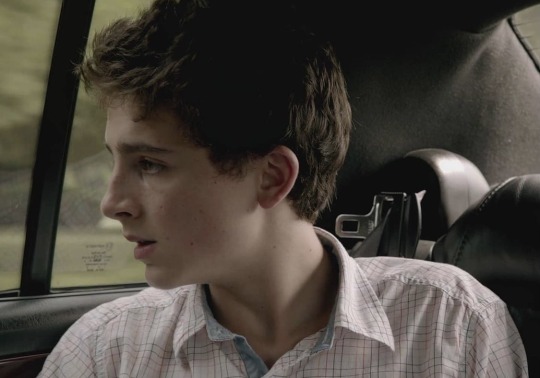
Finn Walden - Homeland (2012)
35 notes
·
View notes
Text
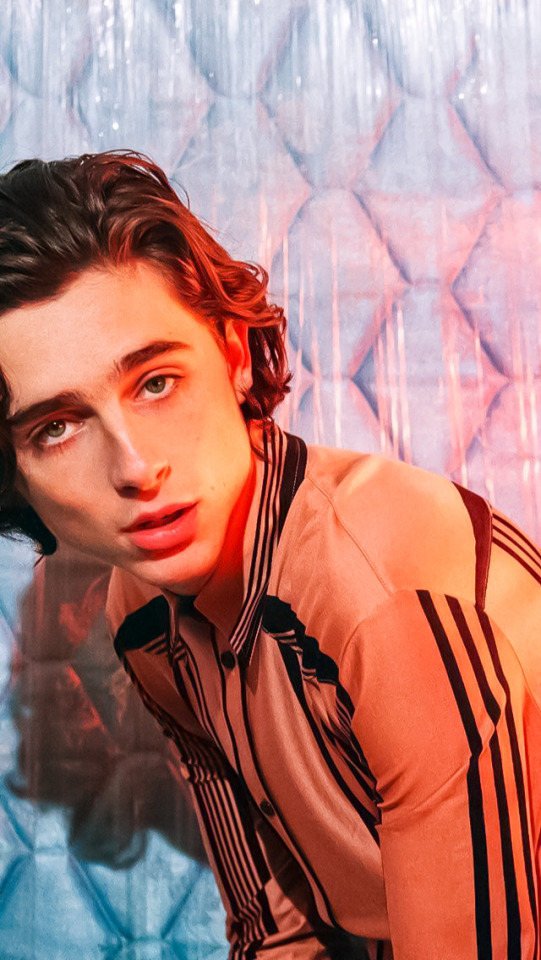

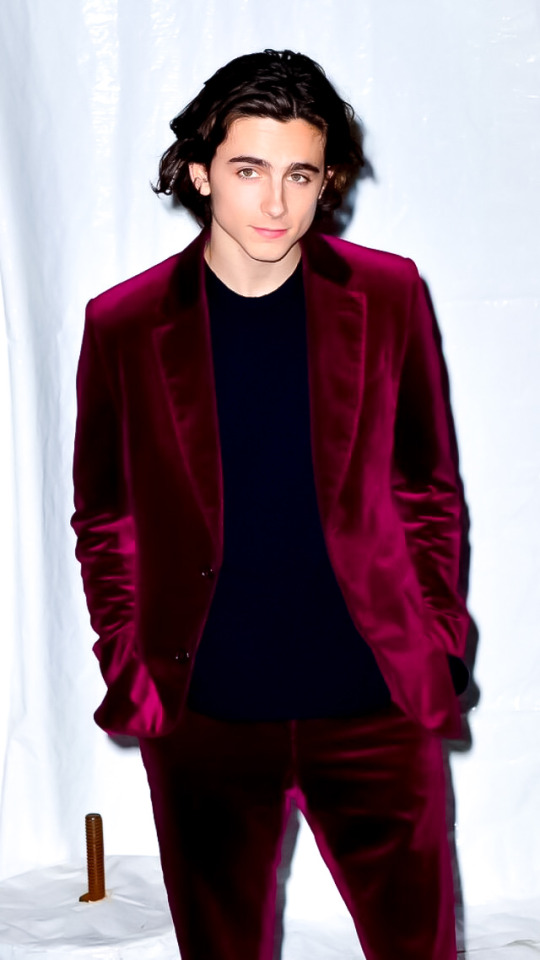
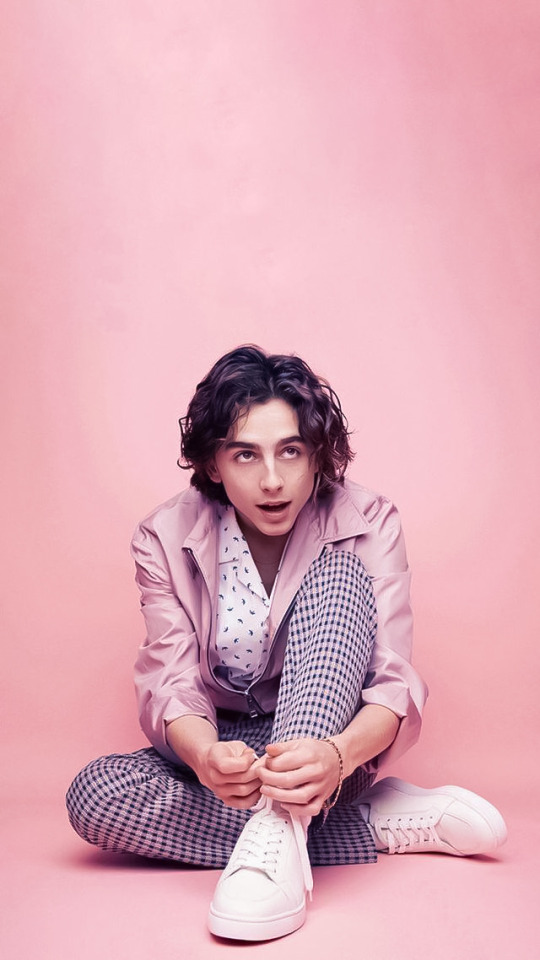
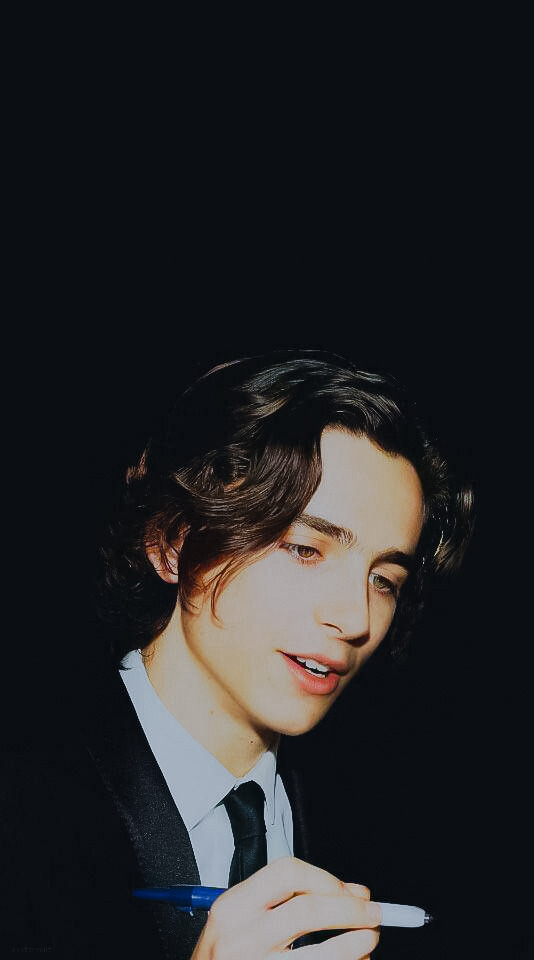

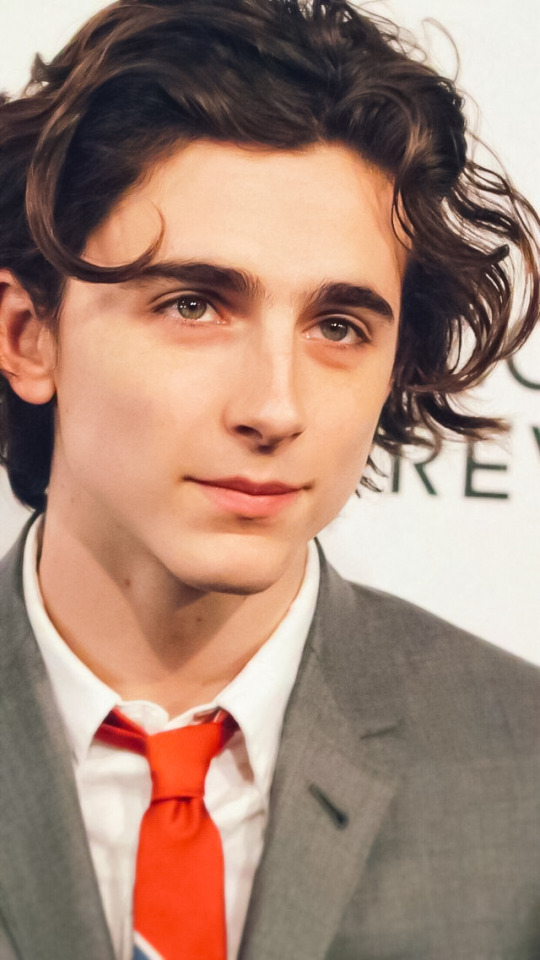
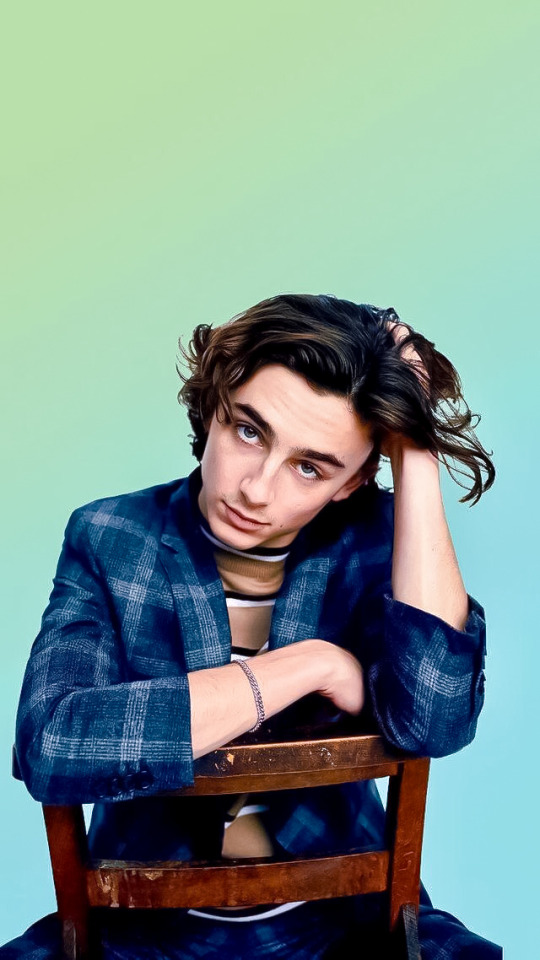

WALLPAPERS TIMOTHEE CHALAMET | DÊ LIKE!
#wallpapers#lokscreen#tela de bloqueio#tela de fundo#papel de parede#se pegar dê like ou reblog#wallpaper#fondos de celulares#fondos de pantalla#mcp#tumblr#iphone#timothee chalamet#ator#actor#homeland#series#finn walden#♡
755 notes
·
View notes
Video
I’m guessing someone out there wouldn’t mind hearing this.
Have posted all the Homeland clips of Timmy.
#timothee chalamet#timothée chalamet#morgan saylor#homeland2012#finn walden#dana brody#homeland#estellaestella#estellaestellaestella
85 notes
·
View notes
Text
the only good thing about Homeland is young timothee chameleon
#i would so date him if i was there#im his age (in homeland) i can say that#disclaimer i dont know anything about homeland my mums just watching it#timothee chalamet#homeland#finn walden
1 note
·
View note
Photo


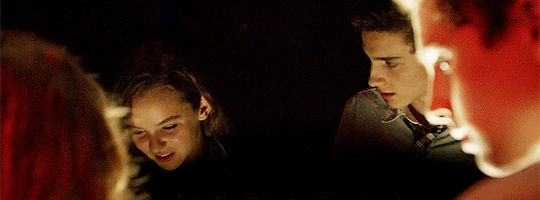
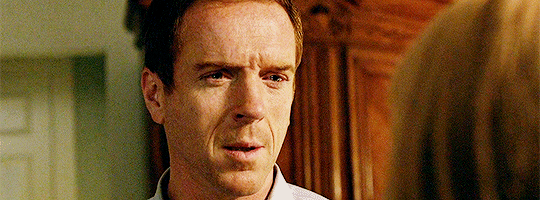
homeland | the final countdown | “new car smell”
“As the scene swims and hums with a fevered, impossible delirium, armed agents swarm the room and throw a hood over Brody, a congressman bound for a cage in Guantanamo. And then Carrie jabs him with the words she’s been saving up since the pilot: ‘You’re a disgrace to your nation, Sergeant Nicholas Brody. You’re a traitor and a terrorist and now it’s time you pay for that.’” --Andy Greenwald
#homeland#homelandedit#carrie mathison#nicholas brody#dana brody#jessica brody#finn walden#new car smell#*#by: sara#season eight countdown#memories of watching this:#:O
9 notes
·
View notes
